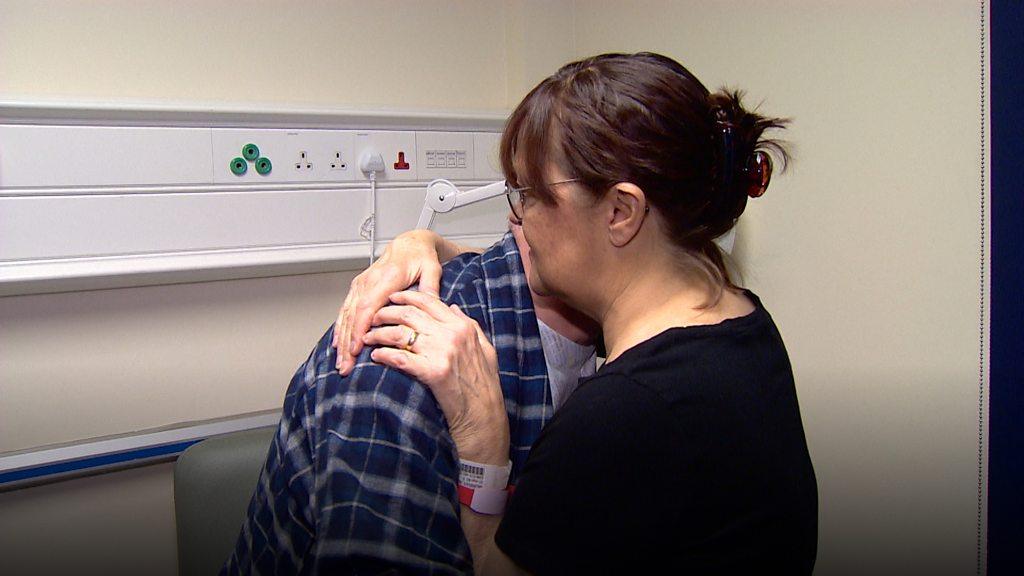Hexham family's heartache as third child needs kidney transplant
- Published
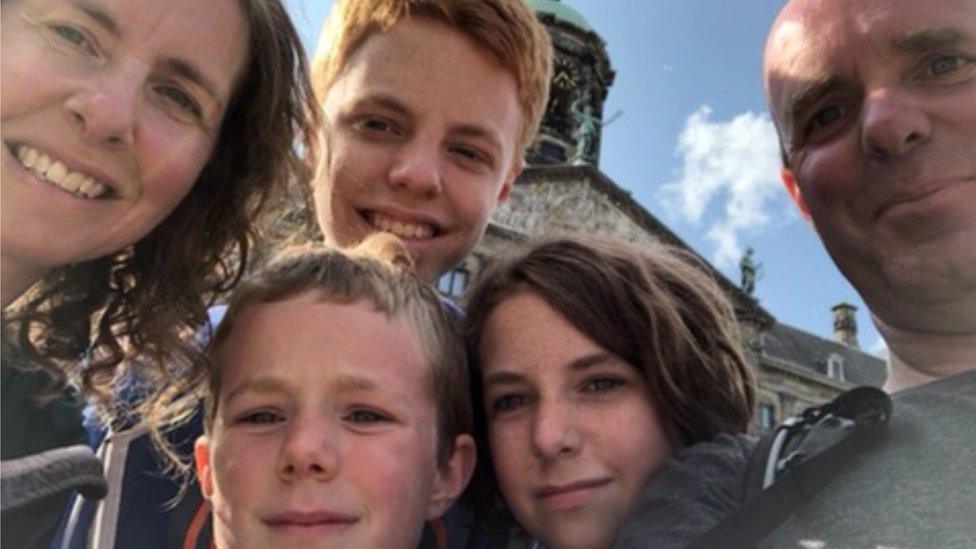
Noah (back centre) and his sister Ariel (third from left) have had their kidney transplants and their brother Casper will need a transplant in the future
The parents of two children who underwent kidney transplants have told of their heartache that their third child will also need a new organ.
Sarah Bingham donated a kidney to her daughter Ariel, 18, on 30 June 2022 and a friend donated to her son Noah, 23, three months later.
Both children have nephronophthisis, which causes scarring to the kidneys.
Now Sarah and husband Darryl have spoken of their grief that son Casper, 14, will also need a kidney transplant.
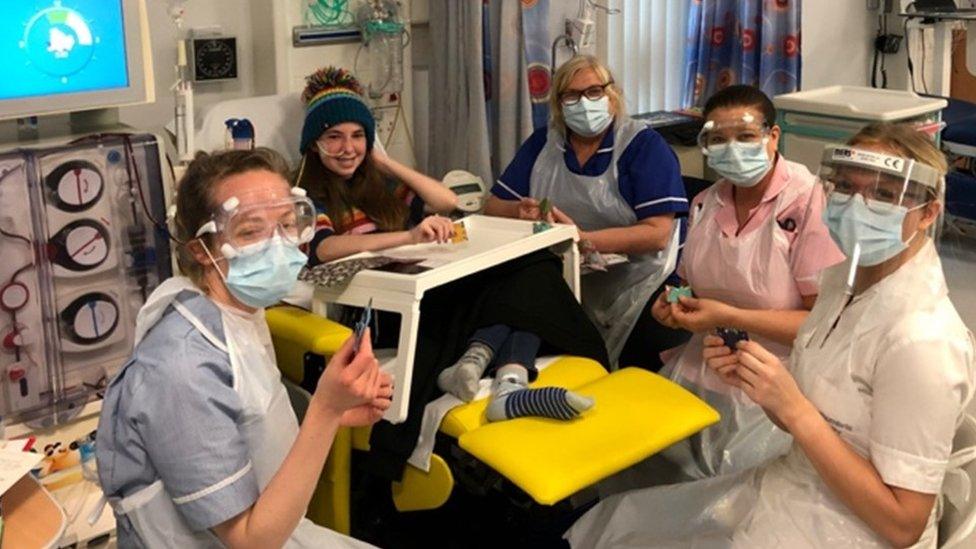
Ariel with the nurses on Ward Seven at the Great North Children's Hospital
"He took the news well, considering its implications, but we found it very hard, and at the time, shocking as the chances of all three of them having the condition were incredibly low," Sarah said.
"The moment we were told Casper had the same condition we both felt numb, wondering how we could face doing this all again.
"Ariel's transplant felt like being on a knife edge - there were so many things that had to fall into place - no staff shortages, no infections, endless crazy logistics."
Nephronophthisis, which all three children have, is a genetic disease which leads to kidney failure usually before the age of 30.
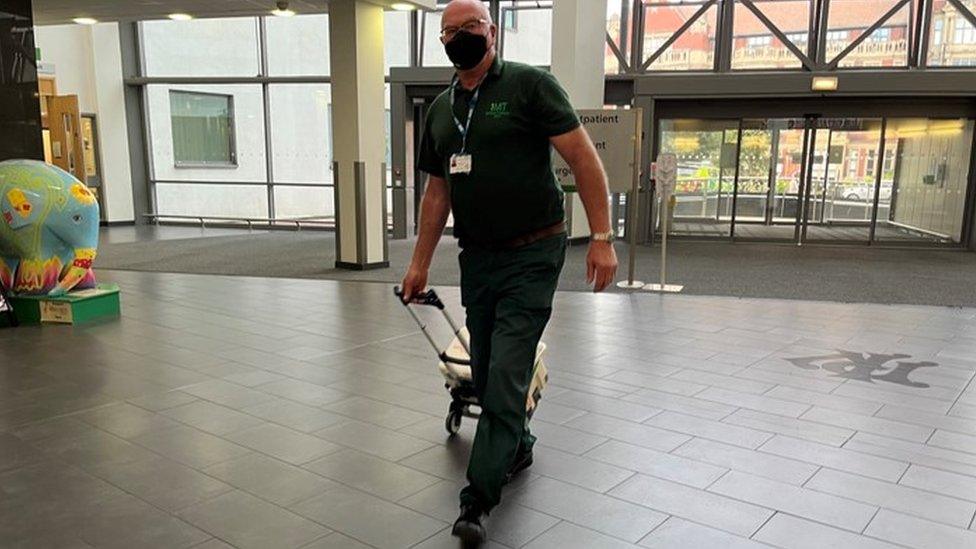
Sarah's kidney arriving at the hospital to be transplanted into her daughter
Problems began in 2016 when Ariel started to feel constantly tired, and she was removed from the school roll to be educated at home.
Tests carried out at Newcastle's Royal Victoria Infirmary found she had the kidney condition.
Sarah was told she would be a suitable donor for Ariel when the time came.
Then, in 2019, Noah had finished his A levels and was excited about going to university, when he became unwell.
Sarah said: "He was violently sick every other day. After five days, he was vomiting blood, so I took him to the doctor."
He was found to be in renal failure, and was immediately placed on dialysis.
Sarah, of Hexham, Northumberland, was also a match for Noah, but unfortunately Darryl was not a match for any of the children.
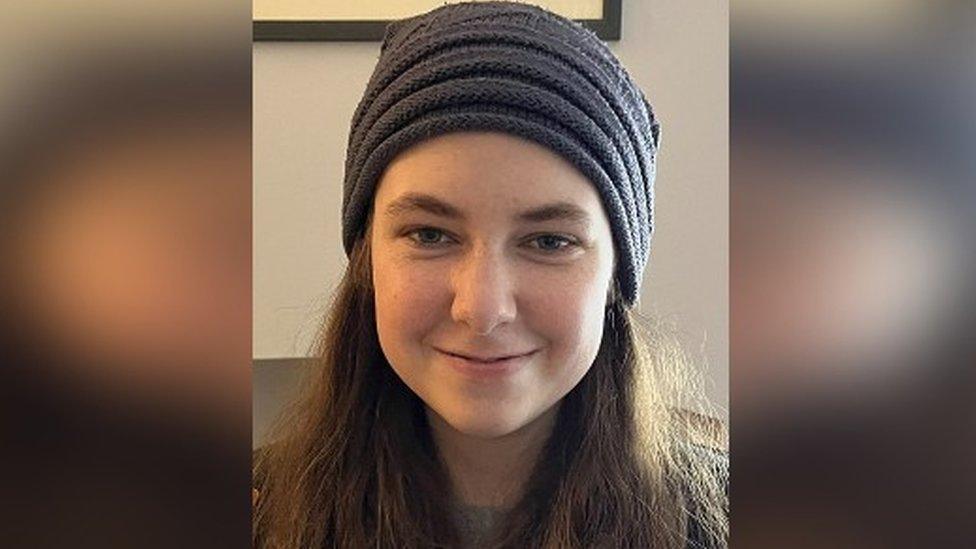
Ariel seven months after her kidney transplant
The family decided she should donate to Ariel after a family friend was found to be an altruistic donor match for Noah.
During the 15 months before Ariel's operation she underwent dialysis and studied for some GCSEs.
She had to do her last three exams in isolation in hospital.
On the morning of the operation her mother's kidney was removed at Newcastle's Freeman Hospital via keyhole surgery and driven a few short miles to the Royal Victoria Infirmary to be transplanted into her daughter.
"The fact that the transplant went ahead felt like a miracle, as the hospital was experiencing staff shortages due to covid infections," Sarah said.
Ariel experienced "mild organ" rejection but was well enough to attend her home education Prom via zoom and was discharged after two weeks.
She started sixth form eight weeks after her transplant after being educated at home for six years.
Three months after Ariel's, Noah was well enough to have his six-hour-long transplant at Newcastle's Freeman Hospital.
It went well and he was discharged from hospital after five days.
Sarah said "the journey post-transplant has been anything but straightforward."
Both have experienced a variety of challenges including rejection, biopsies and iron infusions.
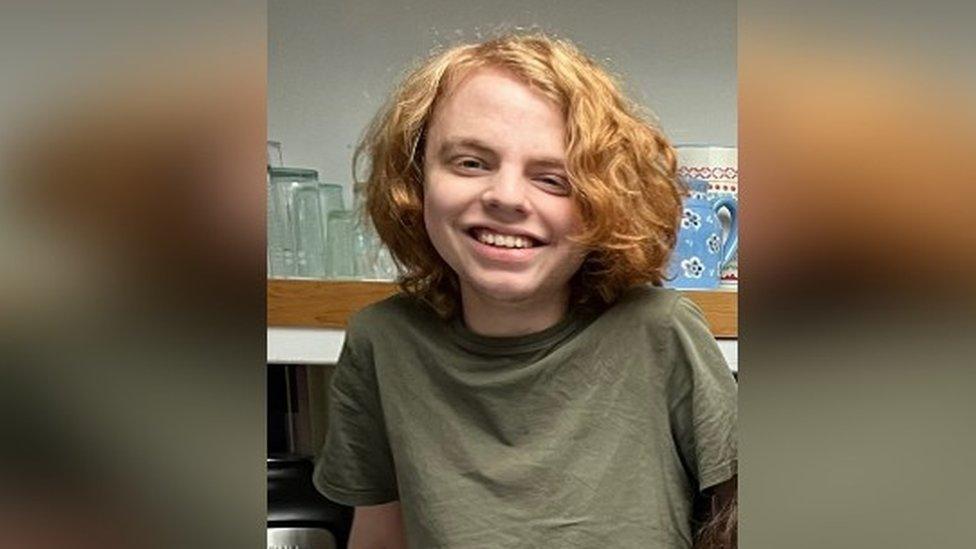
Noah two months after his kidney transplant
Sarah said, of donating a kidney: "It is absolutely the best thing I think I have ever done.
"Ariel is my child, so there was no question that I should donate to her, but the people who donate altruistically, are the ones I am in awe of.
"It has been a blessing to know that I have been able to give life to my daughter a second time."
"Obviously going through two transplants so close together, with me as the donor, has made things more complex than if we'd only had one transplant to deal with," she added.
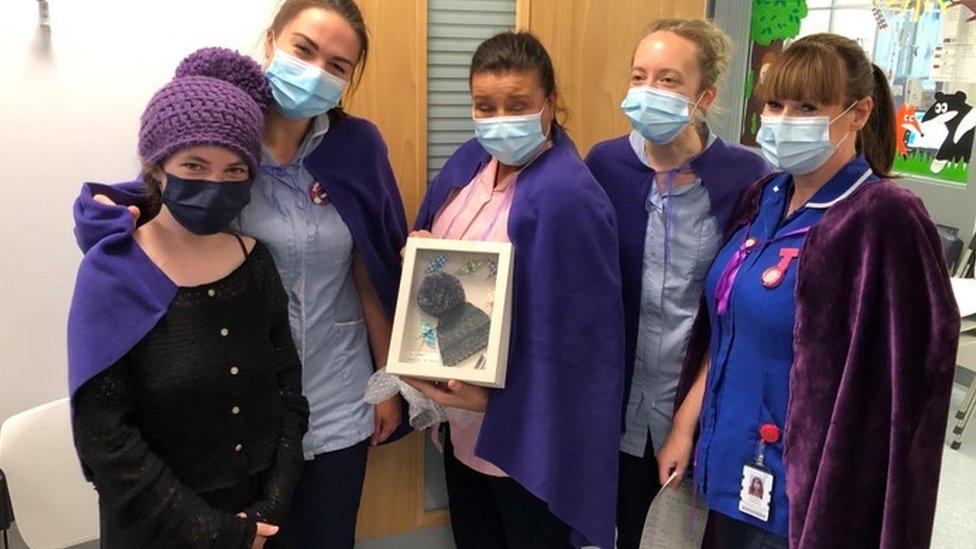
Ariel saying goodbye to the nurses at her last dialysis session in the warrior cloaks the family made for them
Prof John Sayer, a kidney specialist at Newcastle's Freeman Hospital who is treating Noah, said there were currently 5,600 people in the UK on the kidney transplant waiting list.
"The benefits of a kidney transplant for someone with kidney failure are huge, it is almost always the best treatment, enabling a better quality of life, more energy and the avoidance of dialysis," he said.
"Altruistic kidney donation is slowly increasing in the UK, allowing patients the extraordinary gift of kidney function to improve their lives."
Sarah added: "Transplant is not a cure and there are no guarantees as to how long a transplant organ will last.
"It's vital to have that conversation with your families - let them know your wishes."
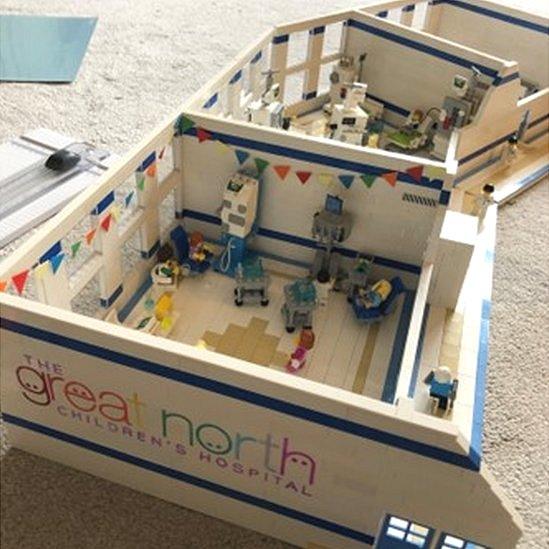
Noah spent his time while ill designing and building a model renal unit

Follow BBC North East & Cumbria on X (formerly Twitter), external, Facebook, external and Instagram, external. Send your story ideas to northeastandcumbria@bbc.co.uk, external.
Related topics
- Published8 January 2021
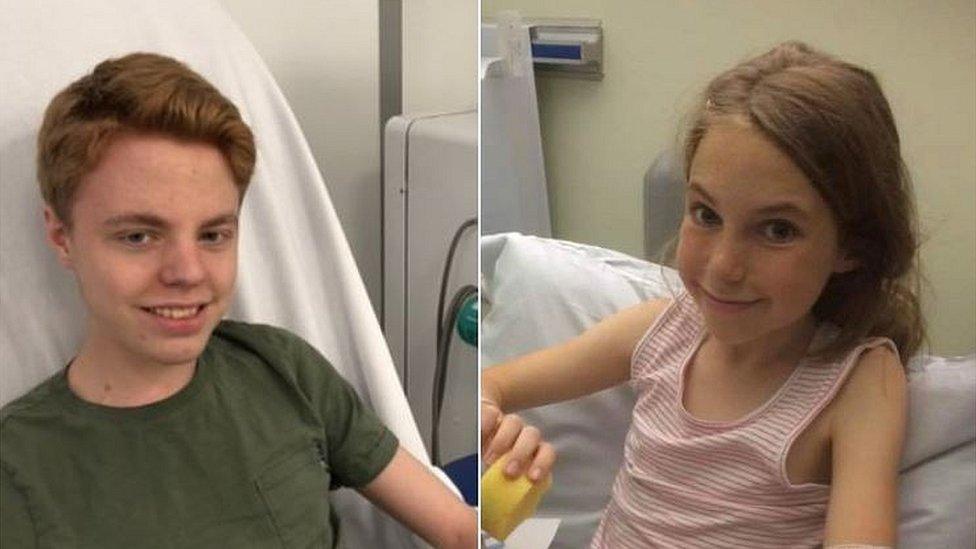
- Published7 January 2021

- Published7 January 2021
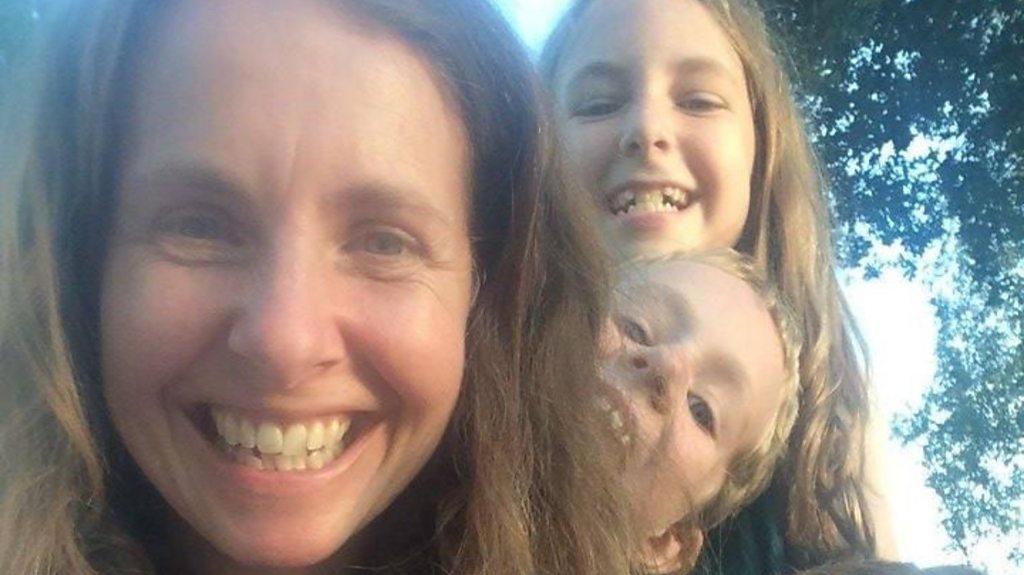
- Published10 April 2018
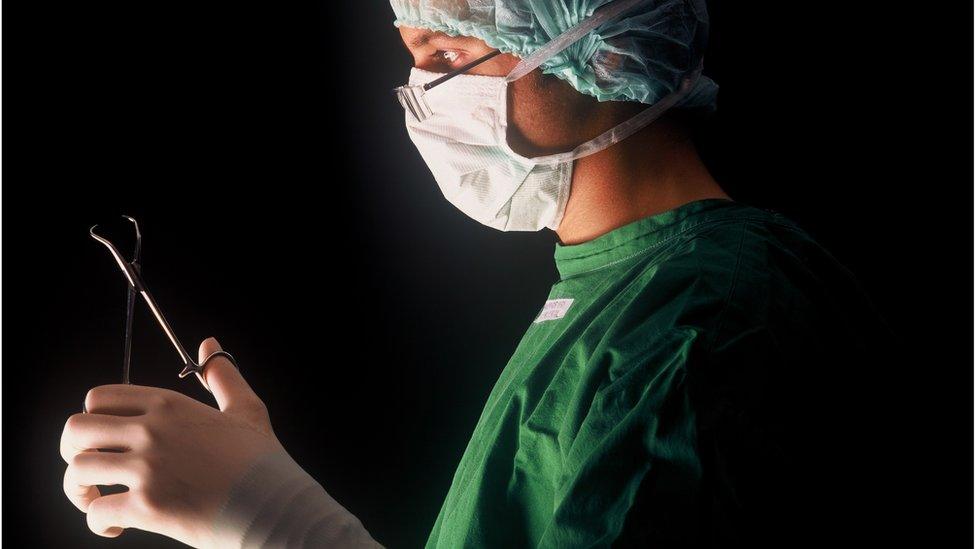
- Published16 April 2019
